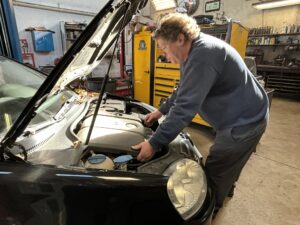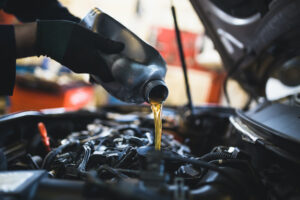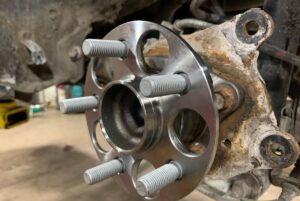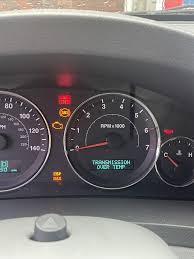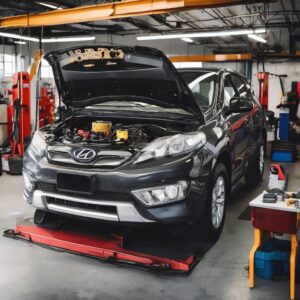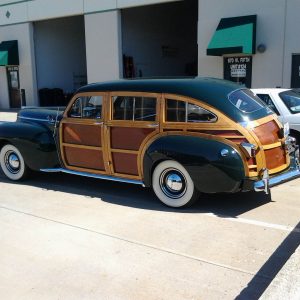Pads and Rotors must be replaced.
Your brakes, on the other hand, may be nearing the end of their service life, which means the pads and rotors are worn out. Because the pads (or what’s left of them) and rotor are making metal-on-metal contact, you’ll ultimately hear a screeching noise if the friction surface on the brake pads wears down sufficiently. Another source of noise might be warped rotors, which means the brake pads don’t make even contact with the rotor surface when braking. In this scenario, replacing the brake pads and rotors is the best solution.
The good news is that worn brake pads and rotors are usually easy to spot. It’s time for a brake work if the brake pad has less than 3/8″ of friction material remaining, the rotor surface has visible grooves, or the rotor has a prominent outer lip.
Electronic Parking Brakes in Automobiles
Electronic parking brakes are prevalent in today’s automobiles and trucks. Because an electronic parking brake is computer-controlled, any type of brake maintenance frequently necessitates the use of specialized equipment. In these cases, you’ll almost certainly need to take your vehicle to a dealership or a specialized technician.
Some brakes are perpetually noisy.
Under typical driving conditions, most passenger vehicles’ brakes should be quiet. However, there are times when loud brakes are unavoidable. These are often seen in high-performance automobiles with powerful braking systems. These braking systems’ rotors and pad compounds are naturally loud, especially when cold. These brakes have a higher durability for extended periods of severe use as a trade-off.
Squeaky to Quiet is a transition from squeaky to quiet.
The most prevalent reasons of noisy brakes are now known to you. Depending on your situation, a simple grease job may suffice, or you may require a comprehensive brake overhaul.
Disclaimer: This material is provided for informational purposes only and is not intended to be a substitute for professional advice. Always seek the counsel of a qualified specialist or the manufacturer of your vehicle. Take all essential safety measures if performing any repairs yourself.

